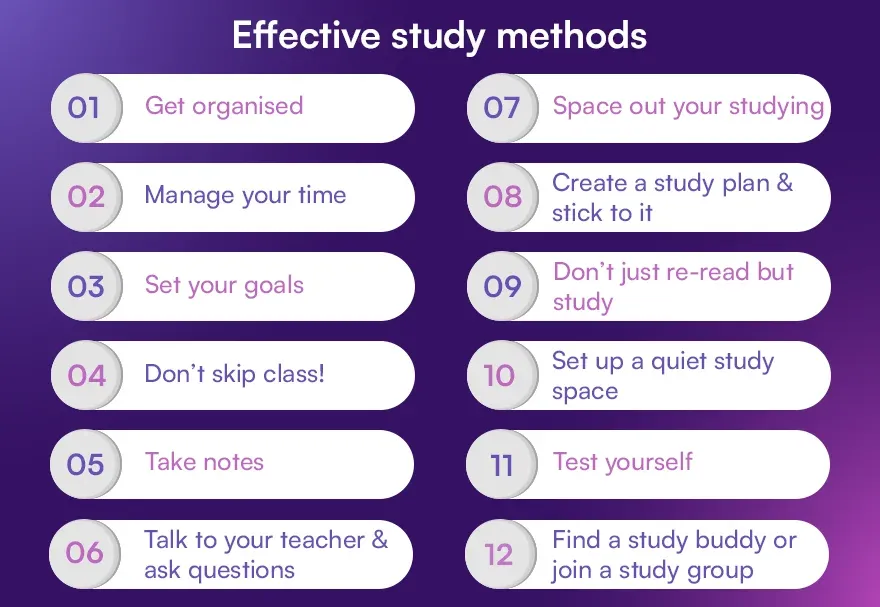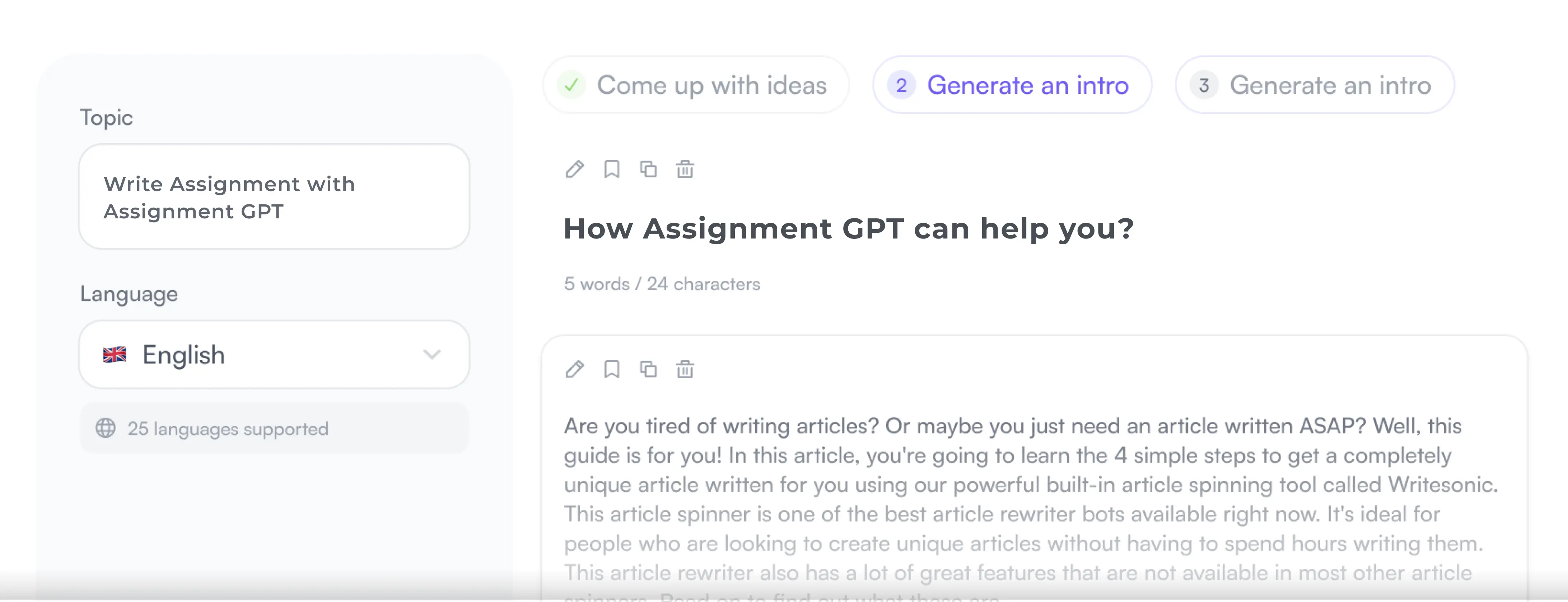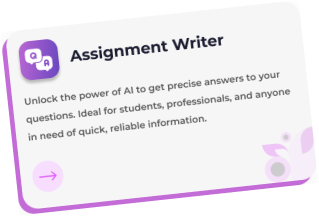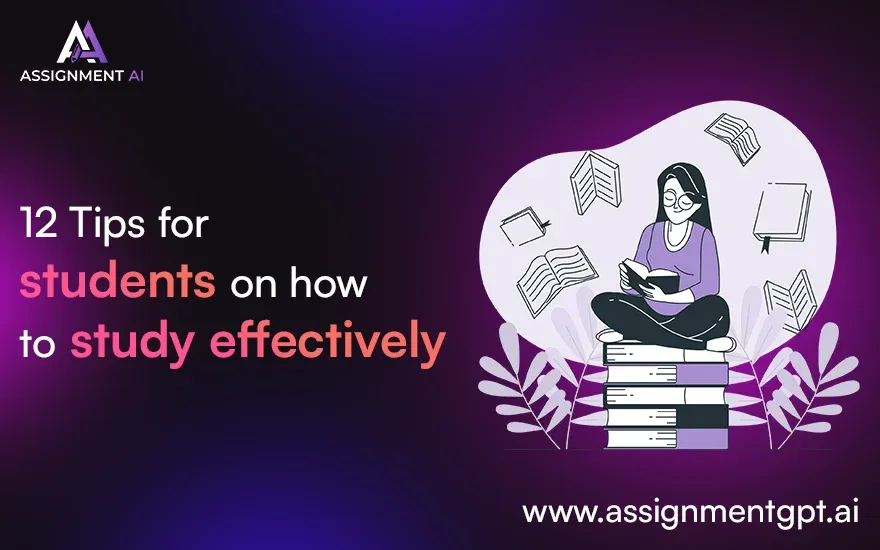AssignmentGPT Blogs
Studying. Either you absolutely love doing it, or you do it just to pass your classes. That’s just about it. But, even if you’re doing it to just pass your classes – you still need that edge.
Students are often faced with various dilemmas. Then come the big dogs like procrastination, stress and peer pressure. They birth to problems such as anxiety, depression and can turn into something that becomes detrimental to one’s wellbeing.
So, here we have a list of 12 study techniques and tips for students that can help them study effectively:
Quick Summary
In this blog, we’ll be giving you some study strategies on how you can study in a more effective manner!
How to study effectively
Studying is something that people have different methods of dealing with. Some like to study late at night, while some like to study after the sun rises.
It is all about personal preference, but we’ve managed to compile tips that can be applied to every student out there. Here we go with our study techniques and methods!

1. Get organized
Starting off, it is important to get organized.
Identify how much study you have left, how much you have to revise and how much you are yet to understand. Further, divide your work and pair up subjects that are similar. Doing this protects you from feeling bored. Then, make a plan with a timeframe that you’ll complete the following amount of study in a given time period.
2. Manage your time
Time management is a nightmare for many students out there. Though developing discipline is an integral part of life, sometimes procrastination takes the lead.
This happens when you’ve made elaborate timetables for everything, but you simply can’t adhere to them. It’s like taking the first step but not being able to start it/stick to it.
So, it becomes crucial to then manage time. It should be less thinking and more doing (as in studying). Identify distractions and put them to bay while you are planning to start studying.
3. Set your goals
To-do lists are a routine in the lives of most people. And it is because of the utility that they provide. Similarly, goals are just an upgraded version of those.
Goals are the ultimate end-product that you would like to achieve. To achieve them, to-do lists are smaller tools. Get a list of things that can be accomplished in a relatively low amount of time. For example, a couple of units in a chapter can be in a day’s to-do list, while a whole chapter is a goal for a week/more than a week.
Setting clear, achievable goals helps you in adhering to them as well.
4. Don’t skip class!
While we do emphasize that self-study is a crucial aspect, but you shouldn’t miss classes either. Going to classes regularly is a good habit.
Not only can you study amidst the company of your friends, but you also get access to teachers as well. Teachers can help you with pointers that you’re maybe stuck on.
Other than that, who wants to miss out on the classroom fun, eh?
5. Take notes
The key with taking notes is that you need to be concise with them. The ability to rapidly write what you’re thinking needs to be developed over time. Keeping notes organized is your best bet.
Use headings, bullet points and mini headers. This will help you in organizing your work in a way that is well presented.
Also read this article : Best AI Tools For Students In 2024
6. Talk to your teacher & ask questions
Your teacher is your ally. A good teacher will aim to support you and guide you in the aspects that you’re stuck in, or while teaching you simple aspects.
Don’t be afraid to reach out to them if you have doubts or are having trouble with understanding something. They’re there for you. Also, make sure that you have a list of questions prepared.
This way, you can aim to get all your questions answered in one go.
7. Space out your studying
See, you don’t need to be studying just one night before your exam. Doing that can sometimes be the factor between you passing your classes and you failing them. As they say – Little and often beats a lot and rarely!
Consistent study sessions are more effective. Other than that, your brain needs rest to function properly. It is essential that you take breaks (don’t make them too frequent though) while you’re studying. This will give you that refreshed outlook, ready to take on more study.
8. Create a study plan – & stick to it
Creating a study plan is crucial. Make sure you tailor your study plan to your learning style. Are you a visual learner? An auditory learner? Or a kinesthetic learner?
Identify that and make a study plan that aligns with what you require. A ‘sturdy’ study plan goes a long way. You can also utilize a planner or calendar to visualize your schedule.
Set realistic goals. Don’t overload yourself with too much study time. You can start off with smaller goals, and then go on to gradually increase your workload as you become more accustomed with your plans.
9. Don’t just re-read but study
Active recall is surely more effective than passive reading. You can test your knowledge by quizzing yourself or explaining concepts to something else. Re-reading will just accustom you to memorizing your study material instead of actually understanding it.
That’s why a good teacher goes a long way. One that can explain concepts to you in a conceptual way, using proper examples.
10. Set up a quiet study space
By this, we mean that you can create a space that helps you get into the study zone. Usually, this can be a place where you can filter distractions and can study for hours and hours at end.
Usually, bedrooms become the study rooms of most people. But when you see that organized bed of yours, you may be inclined to take a nap. So, make sure you keep a couple of factors like noise, movement of people and lighting in focus while you pick a space to study.
11. Test yourself
Taking mini tests and quizzes helps you assess how much you’ve actually understood. This can truly help you determine if you’ve ingrained a concept well or not.
When you truly understand a concept, you’ll go on to ace quizzes and tests. With that, you’ll also be able to identify the factors that you’re currently lacking in.
12. Find a study buddy or join a study group
A study buddy can be beneficial. They can help you with concepts that you don’t understand, and you can help them with concepts that they don’t understand.
And as they say, the third time’s a charm. Get a good study group that has friends that collaborate and communicate in an effective manner. This can be either super beneficial and productive, or it can become the exact opposite of what you thought it would be – that is a fun and laughter riot!
Learning has to be fun, but make sure to keep the learning too and not only focus on the fun part.
Conclusion
This way, we’ve given you 12 steps in which you can study more effectively. It is crucial that you consider these 12 pointers, and evaluate them.
Do you stand on-level with these pointers? Or do you need to identify the areas of weakness?
Studying is a process and requires a lot of factors to go in a specific way. But in the end, the goals matter, and so does the ‘why?’ Ask yourself how badly you need to achieve your goals, and that’s your motivation!
We hope these were some helpful study techniques for you! Assignmentgpt AI will help you with your study effectively. Try now.
FAQs
1. How can I improve my concentration and focus while studying?
2. What’s the most effective study method?
3. How can I balance studying with other commitments?
Content writer at @AssignmentGPT
Kandarp’s world is powered by conversations, content, and creativity. With experience across branding, literature, publishing, and strategy, he has helped shape identities and stories for businesses across industries. At AssignmentGPT AI, he leads a team that blends sharp content, strong design, and local insight to turn businesses into brands that connect with people.
Master AI with
AssignmentGPT!
Get exclusive access to insider AI stories, tips and tricks. Sign up to the newsletter and be in the know!

Transform Your Studies with the Power of AssignmentGPT
Empower your academic pursuits with tools to enhance your learning speed and optimize your productivity, enabling you to excel in your studies with greater ease.
Start Your Free Trial ➤Start your success story with Assignment GPT! 🌟 Let's soar! 🚀
Step into the future of writing with our AI-powered platform. Start your free trial today and revolutionize your productivity, saving over 20 hours weekly.
Try For FREE ➤








